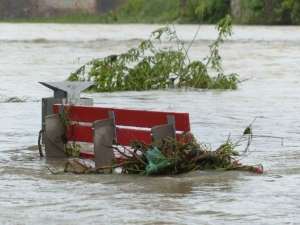The environment is in an extremely delicate balance, where even the slightest change can cause a major disaster. A team of Franco-Swiss researchers has, for the first time, simulated the entire greenhouse effect process that can transform a perfectly habitable planet like Earth into a sterile sphere with infernal temperatures. This study is expected to enhance the research on planets outside our solar system but could also have repercussions for various terrestrial studies. The team of astronomers from the University of Geneva (Unige), with support from CNRS laboratories in Paris and Bordeaux, behind this "world first," demonstrates that a slight increase in the Sun's luminosity would be enough "to cause this disaster and make our planet uninhabitable" by raising the temperature by several tens of degrees. In comparison, global warming, caused by human activities and the concentration of greenhouse gases in the atmosphere, is expressed more in tenths of a degree Celsius of temperature increase. "Until now, other key studies in climatology have focused on studying either the temperate state before evaporation or the uninhabitable state after evaporation," explains Martin Turbet, a researcher at CNRS laboratories in Paris and Bordeaux and a co-author of the study published in the journal Astronomy & Astrophysics. "It is the first time a team has studied the transition itself with a 3D model of the global climate and is interested in how the climate and atmosphere evolve during this process," he added, according to a press release from Unige released on Monday. Water vapor plays a central role in trapping the heat of solar radiation, much like a survival blanket, thereby preventing its dissipation into the vacuum of space. This is the greenhouse effect. A little greenhouse effect can create the temperate conditions known, for example, on Earth, too much greenhouse effect, and the planet becomes a pressure cooker. "There is a critical threshold for this amount of water vapor beyond which the planet cannot cool down anymore. From there, everything goes haywire until the oceans eventually evaporate completely, and the temperature reaches a few hundred degrees," explains Guillaume Chaverot, former postdoctoral researcher at the Department of Astronomy at Unige and lead author of the study. One of the key points of the study describes the appearance of "a very particular cloud pattern that contributes to the evaporation effect and makes the phenomenon inexorable," explains Guillaume Chaverot. This reason could be a specific "signature" of the phenomenon, possibly detectable on exoplanets-planets that orbit stars other than the Sun and are increasingly numerous for astronomers to record. The first exoplanet was discovered by two researchers from Unige. "One of our main motivations is to determine their potential to host life," explains Professor Bolmont, director of the Center for Life in the Universe (CVU) at Unige and a co-author of the study. But the study authors also see it as material for research on Earth. This would involve determining whether, like a slight increase in the Sun's luminosity, greenhouse gases can also trigger this process. "If so, the next question will be to determine if the triggering temperatures are the same for the two processes," emphasizes the press release. "In the hypothesis that this evaporation process would start, an evaporation of only 10 meters from the surface of the oceans would result in an increase in atmospheric pressure at the surface by 1 bar. In a few hundred years, we would reach a temperature of over 500°C at the surface," explains Guillaume Chauverot. "Later on, we would even reach 273 bars of pressure and over 1,500°C when all the oceans would eventually evaporate," he added. Guillaume Chauverot has received a research grant to continue studying at the Institute of Planetology and Astrophysics in Grenoble (IPAG), France.
Study: Greenhouse Effect Could Wreak Havoc in the Near Future
O.D.
English Section / 20 decembrie 2023



























































